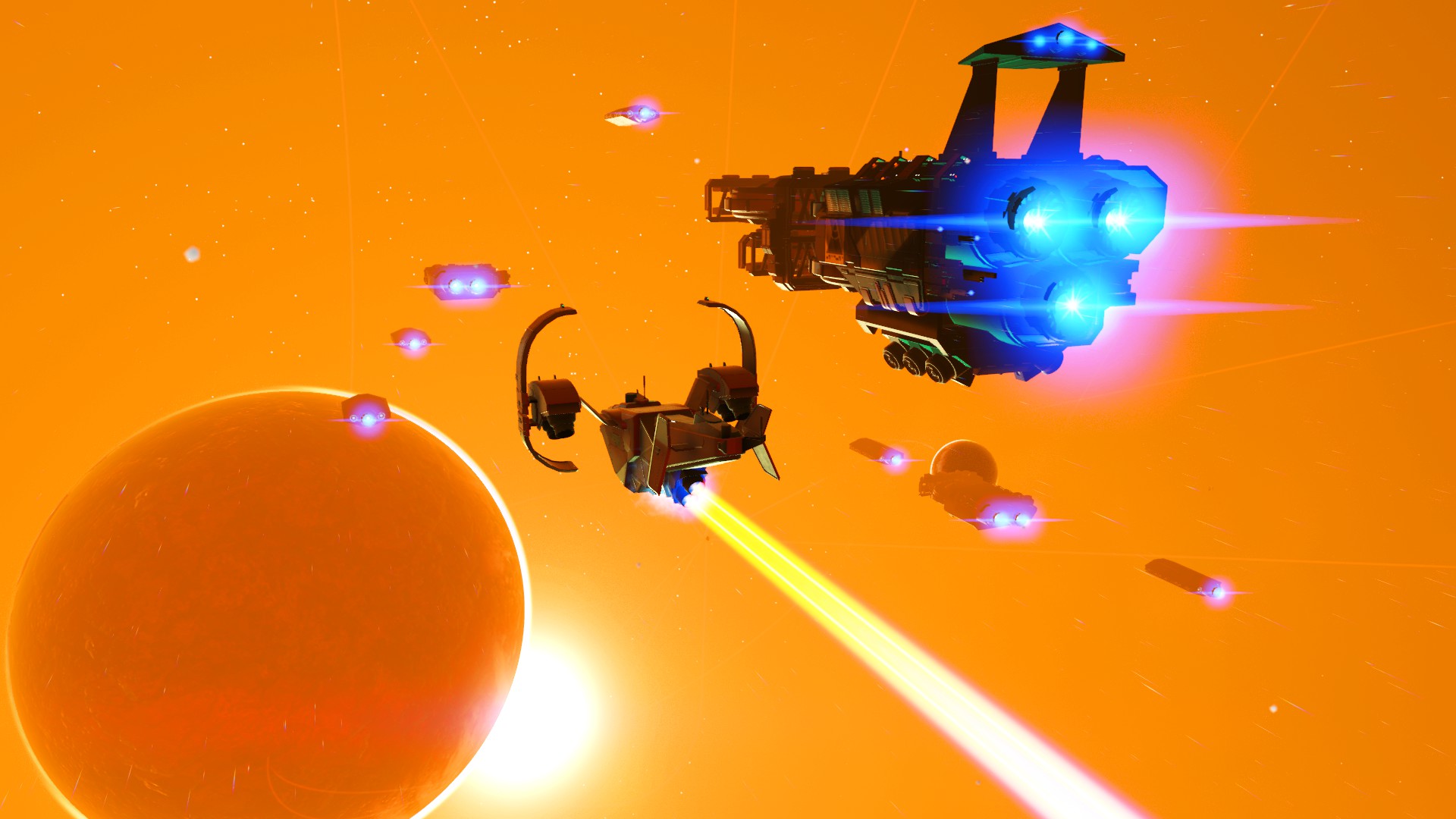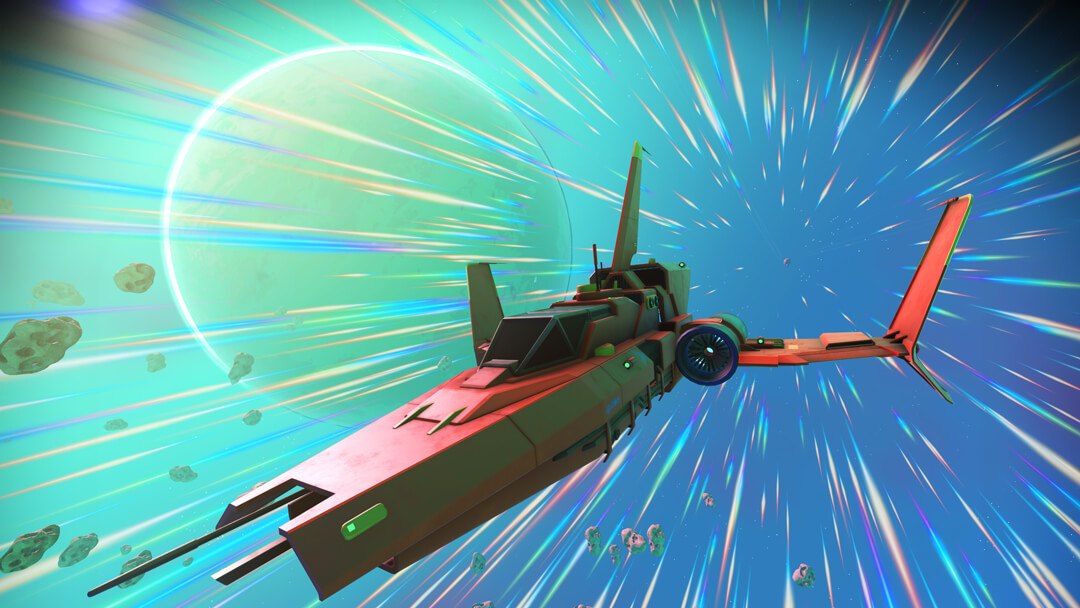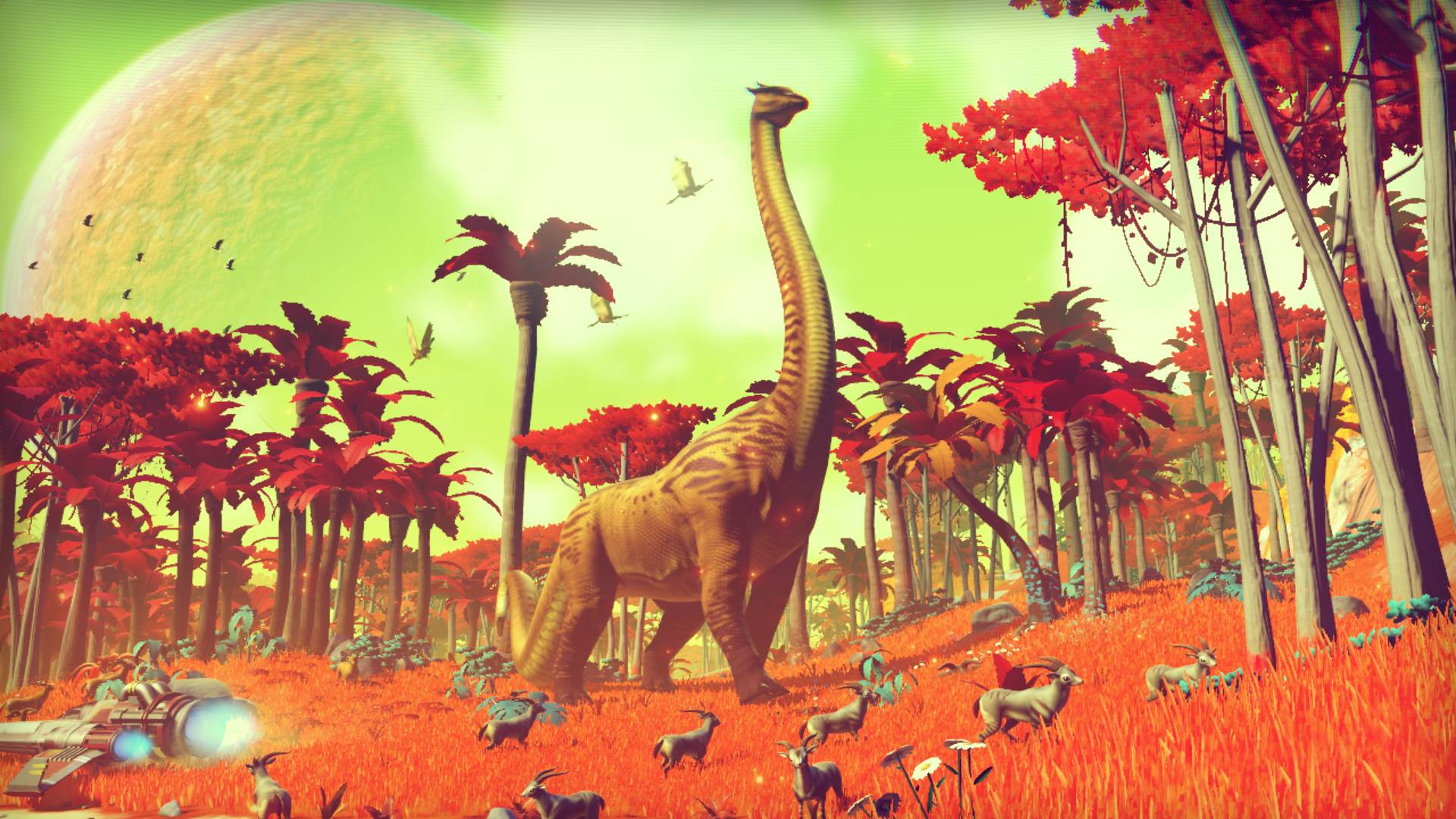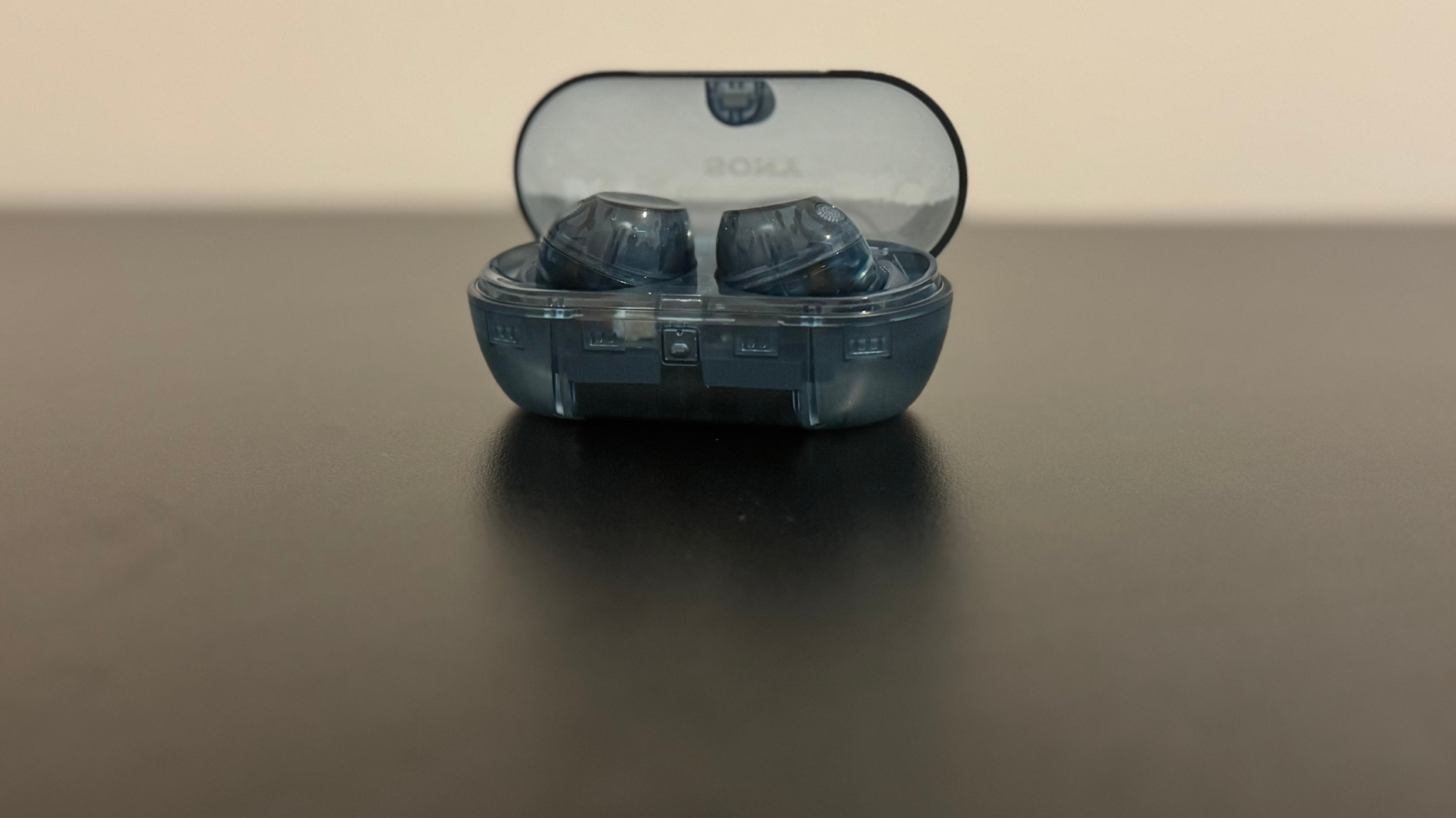One year later, No Man's Sky is a better game but still lacks magic and mystery
Pre-launch hype, post-launch drama, and a studio still trying to build the space game of our dreams.

A year ago this week No Man's Sky released on PC, and its bumpy launch was both the end of a string of troubles and the beginning of many more. In the months leading up to its release, Hello Games' expansive space exploration sandbox was hyped through the stratosphere—and I'll take my share of the blame for pouncing on every last tangible shred of news about it. Since its trailer was shown at E3 in 2015, fans had been eagerly awaiting its release, hoping it was the space game they'd always dreamed of, a near-infinite universe of infinite possibilities, mysteries, and the promise of the unknown.
At the same time, it had been a troubled lead-up to launch day. A change of release dates from June to August resulted in death threats aimed at the developer as well as Kotaku writer Jason Schreier, who broke the story. That July, a Dutch company claimed to own the "Superformula" that NMS used to procedurally generate its planets. Closer to launch, copies of the game leaked early and people were playing and streaming before it was supposed to be out.
And then, the first day NMS officially launched on PS4 (which was a few days before we got it on PC), something extremely unlikely happened. Two players wound up close enough in the near-infinite universe of NMS to arrange a meeting. The only thing more surprising than two players encountering each other on day one was that when they met, they couldn't see each other, despite Hello Games founder Sean Murray having said they'd be able to. In short, the thing that was extremely unlikely to ever happen in NMS happened immediately, but the thing that was supposed to happen if that ever happened, well, it didn't happen.

As for the game itself, there were plenty who were pleased with it, but most were disappointed and lots were downright incensed. In my review I found a lot to like but my enjoyment was hampered by the frustrating menus and endless, chore-like resource gathering. Procedural generation made sure I never saw the exact same thing twice, but after a few hours it became hard to not look at a never-before-glimpsed alien creature and think "Well that one has head-type 12 and leg-type 8, but it's pale blue and not bright blue like the last 12-8 I saw."
The game was beautiful at times, but the dice-rolls that determined the compositions of plants, lifeforms, and planets failed to enchant for long, and I never really came away feeling like I was discovering anything truly special in No Man's Sky. The buildings, outposts, and stores littering the surface of every planet I visited didn't make me feel much like a pioneer or explorer. I wasn't the first astronaut to stand upon these planets, I was the last. Traveling to uncharted solar systems quickly lost its wonder and became a routine. Land, gather, leave, repeat.
Meanwhile, the drama surrounding the game continued. Reddit did as Reddit does, scouring every available interview, statement, and video clip of Sean Murray talking about NMS pre-launch to see if what he said then lined up with the game he eventually presented. Sony, who had partnered with Hello to market the game, suggested Murray "sounded like he was promising more features" than he could deliver, a statement that might be accurate but certainly a shade unfair, considering a Sony VP once described No Man's Sky as "potentially one of the biggest games in the history of our industry" prior to the game's launch. The hype backlash was in full swing.
The E3 trailer was laid side-by-side with footage of the game as released, and many players felt the had been misled by 'bullshots' and gameplay video that didn't represent the finished product. This even led to an investigation by the Advertising Standards Authority, though the claim was eventually dismissed.
Keep up to date with the most important stories and the best deals, as picked by the PC Gamer team.

Murray and Hello Games as a whole retreated into a void of silence for months, save the occasional patch notes detailing bug fixes. It's not too hard to understand why: when every word you've said pre-launch is being scrutinized, it's not much of an impetus to keep on talking. While I could certainly sympathize, I didn't think it was helping anyone—neither Hello Games nor the NMS community—to completely close off communication, and I suggested in September that they needed to start speaking to their community again.
When Hello did begin communicating, it was with only a few words but a boatload of new content for No Man's Sky. While silent, Hello Games had been listening to feedback, and The Foundation update included base-building features, new survival and creative modes, and plenty of fixes and improvements. Foundation was followed by Path Finder, an update that introduced hover bikes and land rovers, a fantastic photo mode, and other new features. This week we'll receive a third big update called Atlas Rises, which arrives after a winding ARG and will bring portals and new spacecraft to NMS.
That's a hell of a lot to happen in a single year to a single game, but expectations for No Man's Sky were so high they'd have been nearly impossible to live up to. I think it's great that Hello Games has remained hard at work to add new features that players have requested, but at the same time adding new parts and pieces doesn't change the core of the game, and that core is what I found ultimately disappointing. As good as they may be, it's hard to believe bases, hover bikes, portals, and ARGs will do much to bring back the mystery and curiosity that made No Man's Sky such a phenomenon before its release.

Chris started playing PC games in the 1980s, started writing about them in the early 2000s, and (finally) started getting paid to write about them in the late 2000s. Following a few years as a regular freelancer, PC Gamer hired him in 2014, probably so he'd stop emailing them asking for more work. Chris has a love-hate relationship with survival games and an unhealthy fascination with the inner lives of NPCs. He's also a fan of offbeat simulation games, mods, and ignoring storylines in RPGs so he can make up his own.

